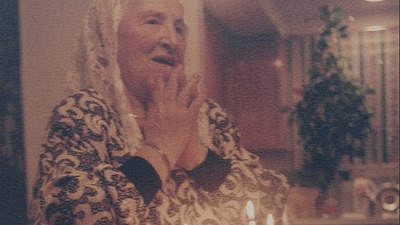Storytelling is a central feature of the Passover holiday. The imperative for Jews to retell our history assures that our children will never forget it.
During the Holocaust, traditional Passover seder texts were handwritten in ghettos from memory. Survivors illustrated Holocaust-themed Haggadahs in displaced persons camps after the war. “In every generation, they stand above us to destroy us,” laments the traditional narrator, “and the Holy One, blessed be He, rescues us from their hands.”
Ideally, we can meet the bearable challenges of our times by appreciating how our predecessors confronted the unbearable difficulties of theirs. In a time of uncertainty and inconvenient isolation, these relics can help to put social distancing in perspective and encourage us to maintain resilience and hope.
Wrapped snugly in bubble-wrap cocoons, the delicate gold-rimmed dishes were making their second transatlantic journey. In an honoring of the past, we were transporting the relics to a sovereign Jewish state after survivors of genocide salvaged them from a country that had sought their annihilation. Symbols of perseverance and desire, the dishes would adorn our Passover table in Jerusalem, and remind us how, from ugliness, beauty can be reclaimed.
In ordinary times, the tableware might have become a sentimental curiosity. During the pandemic, the artifacts take on more significance.
While the history of anti-Semitism is unmistakable, without overt persecution, the hyperboles of Passover can ring flat. During the pandemic, when the danger is indiscriminate and viral, fear and uncertainty resonate more loudly.
While the coronavirus pandemic is no Holocaust, dramatizing the Passover narrative is tempting. How is this Passover night different? With the threat of infection on every doorpost and disappointment spread widely like a plague, like last year, on this Passover night, few things will feel the same.
On a typical Passover, orchestrating an enjoyable seder can be challenging. Rituals can seem tiresome. Not every participant is attentive to the text. During a precautionary lockdown—as was imposed almost everywhere in the world last Passover—the challenge is magnified.
Last year, men and women who ordinarily conducted seders with many guests and/or extended family members found themselves virtually alone. This year in certain communities in the Diaspora, on March 27, the eve of the holiday which is routinely boisterous and observed in groups will again need to be reimagined and observed more intimately. (In Israel, the restrictions imposed on Seders in 2020 are being lifted.)
With fewer guests to indulge and less extended family to engage with, the festival looms strangely. Individuals who have seldom prepared a holiday meal will be tasked to produce meaningful feasts. Parents will isolate themselves from children and children from parents. Communities will still be grieving. The circumstances call for improvisation and some families are more resourceful than the next.
I think of Passover during the Holocaust and other periods of terror and confusion. At a time when celebrating might have seemed naive, some Jewish fugitives found fortitude in ceremonies. Others had the idealism and faith to peer ahead.
While vaccinations are bringing hope, the coronavirus is still menacing. When my enthusiasm for the holiday wavers, I can check myself against the courage of my predecessors. When my foreboding whispers, I can set the holiday table and channel the enthusiasm of those grandparents who saw more hardship than I could know and persevered.
After liberation, Zaidy Victor and Bubby Bella took refuge in the Foehrenwald Displaced Persons camp in Germany with their son, Mendel. Their lives as Polish Hasidim had become suddenly extinct. In a short time, the resolute couple would birth a daughter, Rifka, and make their way to a New World.
Alone and defiant, the small family would begin life anew in a Golden Land. Like those Jews who fled the first holocaust of Pharaoh millennia ago, the fugitives would never look back.
I cannot imagine the wartime atrocities or the foresight necessary to purchase dinnerware in the aftermath of genocide. The Rosenthal china was a physical reminder of what was lost and of what could be had.
Zaidy and Bubby would bring their resourcefulness to Philadelphia, where, with strength and ingenuity, they would add succeeding chapters to their tale.
The coronavirus pandemic is not a world war, and contemporary challenges are trivial in contrast to our grandparents’ travails. Still, in these volatile, uncertain, complex and ambiguous times, I can remind myself that personal contributions matter.
After taking necessary health precautions, my family and I will adorn our seder table with antique china and other nostalgic adornments. From wine-stained Haggadahs, we will recount time-honored stories and add to them our family’s ordeal. And in the spirit of our great ancestors, we will demonstrate that the foundation of survival is both devotion and the optimism to believe that better days lie ahead.
Mendel Horowitz, a psychotherapist, is working on a book about Orthodox Jewish men, group therapy and faith.


























